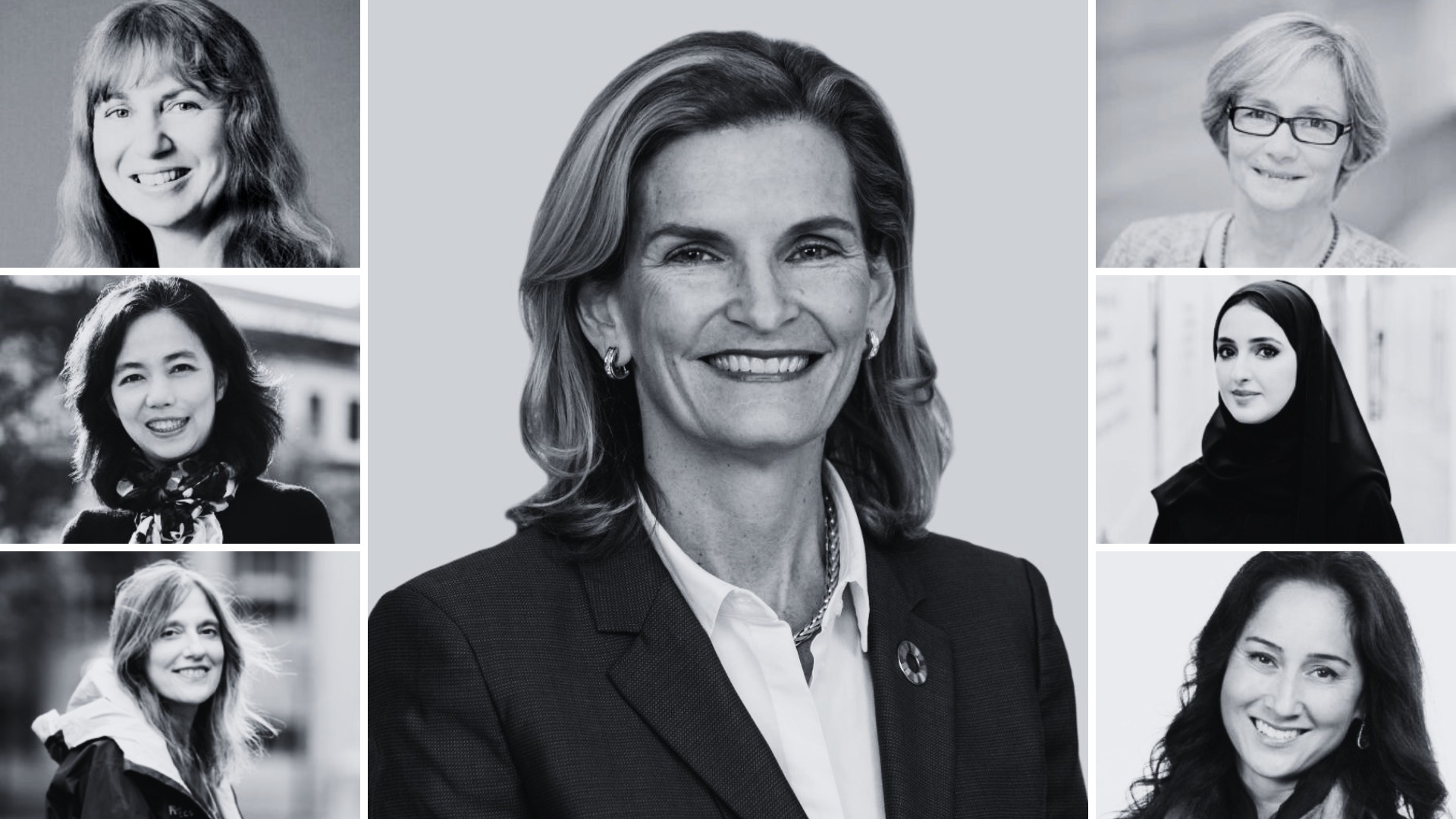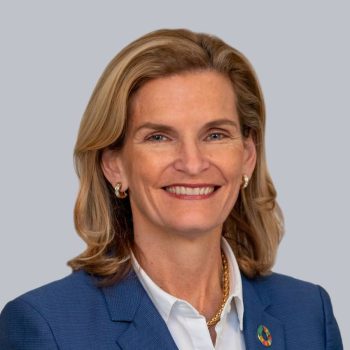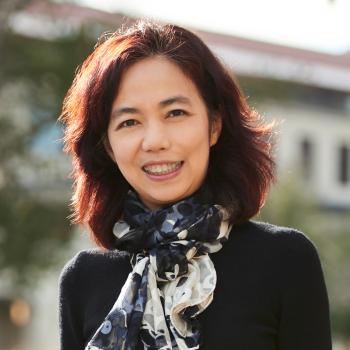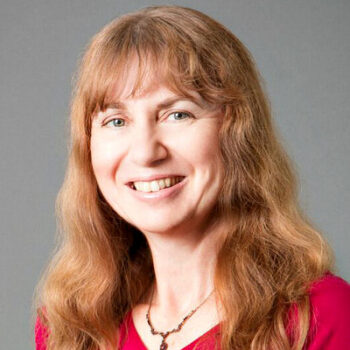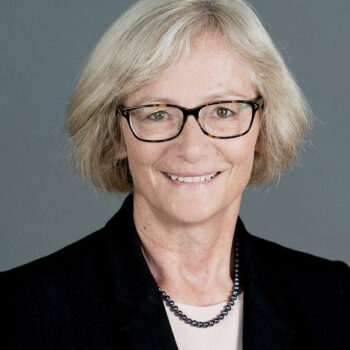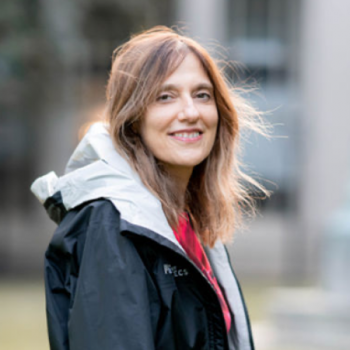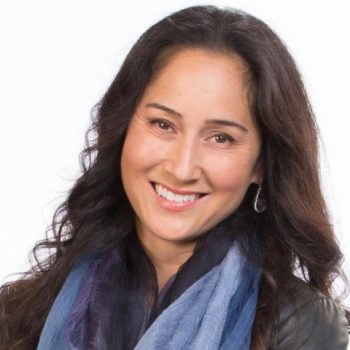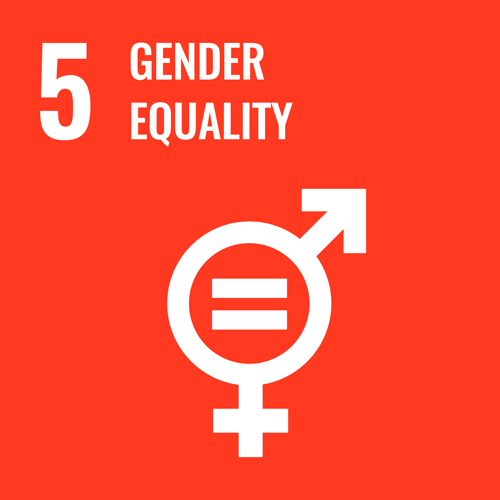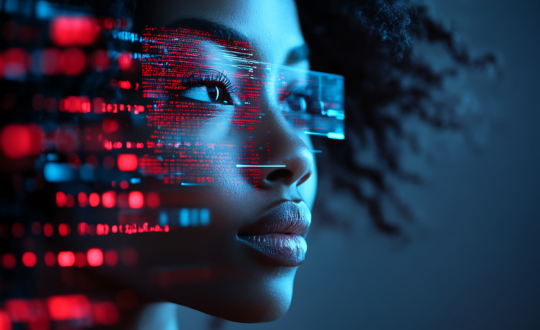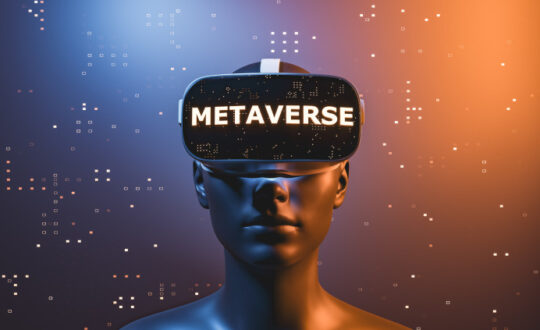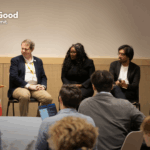As we celebrate International Women’s Day, it’s an important time to reflect on the progress we have made towards gender equality and to recognize the work that still needs to be done.
45%
of AI for Good speakers are women
22%
of AI workers globally are women
In the field of AI, women have been historically underrepresented. Despite the challenges that women face in the tech industry, female leaders are breaking down barriers and using AI for social good, proving that women have a crucial role in the development and application of AI. These women are paving the way for a more equitable future. By showcasing their profiles, we hope to inspire more women to pursue careers in AI and foster a tech industry that is more diverse and inclusive.
“What we do now affects generations to come. We are riding on a powerful wave of innovation and growth, and we must use this opportunity to improve people’s lives, especially those that are excluded”, said Doreen Bogdan-Martin at the ITU Plenipotentiary Conference 2022
Ms. Bogdan-Martin is the first-ever female Secretary-General of the International Telecommunication Union (ITU). She was previously the Director of the ITU Telecommunication Development Bureau and became the first woman in ITU history to hold one of the organization’s top elected management positions.
With over 30 years of international and inter-governmental relations experience, she has advised governments worldwide on policy and regulatory issues. As Chief of ITU’s Strategic Planning & Membership Department, she was instrumental in establishing the Broadband Commission for Sustainable Development, the Global Symposium for Regulators, and ITU’s first global youth summit. Bogdan-Martin has also led ITU’s contribution to the EQUALS Global Partnership for Gender Equality in the Digital Age and the collaboration with UNICEF on the Giga project.
Join Bogdan-Martin at the DigitALL: Innovation and Technology for Gender Equality on the 8th of March 2023 for this high-level event organised by the United Nations Observance of International Women’s Day 2023 that will highlight the need for inclusive and transformative technology and digital education.
“I highly recommend the AI community to start reporting the full-energy consumption and the carbon emissions of their projects, considering as well the inferences. […] Maybe [a project] serves the advancements of technology, but there is still effect and impact in the SDGs and the carbon emission.”, Said Dr. Almazrouei in the AI for Good Keynote on The Future of ‘Green AI’.
Dr. Ebtesam Almazrouei is the Director of the Al-Cross Center Unit at the Technology Innovation Institute (TII), where she conducts research on artificial intelligence (AI). Her research focuses on areas such as deep learning, intelligent networks, sustainable and green AI, and AI applications.
Dr. Almazrouei is a member of the expert subcommittee of the UAE Council for AI and Blockchain and a member of the worldwide steering board of the Wireless World Research Forum. She led the team that built Noor, the world’s largest Arabic natural language processing model. Dr. Almazrouei is also an entrepreneur, public speaker, and author of scientific papers and patents. She is the first Emirati woman to hold a Ph.D. in artificial intelligence for wireless communication engineering and computer science.
“The goal, I think, as a computer vision scientist, is to develop algorithms that can shine light onto this digital world”, said Dr. Li at the AI for Good Global Summit 2017.
Dr. Fei-Fei Li is a professor in the Computer Science Department at Stanford University and Co-Director of Stanford’s Human-Centered AI Institute. She is a leading voice for advocating diversity in STEM and AI, and co-founder and chairperson of AI4ALL, a national non-profit aimed at increasing inclusion and diversity in AI education.
Her research focuses on cognitively inspired AI, machine learning, deep learning, computer vision, and AI+healthcare. She has published over 200 scientific articles, invented ImageNet, and won numerous awards. She was also Vice President at Google and Chief Scientist of AI/ML at Google Cloud from 2017 to 2018.
We need to think of ways in which AI broadly and Robotics in particular can be useful and lucrative, not just by doing our work, but also in supporting us in doing our work, because work brings purpose”, said Professor Matarić in the AI for Good Webinar: Robots for the SDGs: Leveraging AI-powered robotics for good.
Maja Matarić is a professor in the Computer Science Department, Neuroscience Program, and the Department of Pediatrics at the University of Southern California (USC), and is involved in many fields, including computer science, neuroscience, and pediatrics. She has received numerous awards and is a fellow of multiple prestigious organizations. Her research focuses on socially assistive robotics and how robots can help people with various conditions.
She has published extensively, written a popular robotics textbook, and serves on various advisory boards. She is also actively involved in K-12 educational outreach and has developed curricular materials for robotics courses and teacher development programs. She has held various leadership positions at USC and is also the co-founder of Embodied, Inc., which launched Moxie, a socially assistive robot for child development.
“I think the future is about continuing this conversation around the opportunities of AI in data science as it relates to threatened ecosystems, protection of species, and actually leveraging the opportunity to not just do no harm, but to do good through the technologies that we can bring together”, said Professor Batstone in the AI for Good Webinar on AI at the intersection of species conservation and climate action.
Professor Joanna L. Batstone is the inaugural Director of the Monash Data Futures Institute, where she brings together data science and AI capabilities from across the University to promote collaborative interdisciplinary research and industry engagement. She is a thought leader in the development and application of AI and data analytics, with a passion for using AI to drive transformative change for social good.
Previously, she held various technical and business leadership roles at IBM, including as Vice President of Innovation in IBM Corporate Strategy, Vice President and Lab Director of IBM Research – Australia, and Chief Technology Officer of IBM Australia and New Zealand. This experienced technology executive also received several awards for her work in microscopy and materials science.
“ I really see my work in the next few years participating in clinical trials and making sure that all these AI technologies that we are developing are really changing medical regulations and standards of care”, said Professor Barzilay in the AI for Good Webinar on AI-based Risk Assessment Models.
Regina Barzilay is a professor at the Massachusetts Institute of Technology (MIT) who specializes in AI and health. She leads the AI faculty for Abdul Latif Jameel Clinic, a center for machine learning in health at MIT. Her research focuses on natural language processing, deep learning applications in chemistry, and oncology.
She has won many awards for her work, including the NSF Career Award, the MIT Technology Review TR-35 Award, Microsoft Faculty Fellowship, and several Best Paper Awards. In 2017, she was granted a MacArthur fellowship, an ACL fellowship, and an AAAI fellowship. In 2020, she received the Squirrel AI Award for Artificial Intelligence for the Benefit of Humanity.
“In the area of education, there’s tremendous promise in terms of developing personalized highly effective measureable outcomes for people through AI”, said Professor Breazeal at the AI for Good Global Summit 2017.
Cynthia Breazeal is a professor of media arts and sciences at MIT and is the founder and director of the Personal Robots group at the Media Lab. She is also the Associate Director of the Media Lab, the Director of the MIT-wide Initiative on Responsible AI for Social Empowerment and Education, as well as the co-founder of the consumer social robotics company, Jibo, Inc.
Her work focuses on social robotics and human-robot interaction, specifically designing personified AI technologies that promote human flourishing. Professor Breazeal is an international award-winning innovator, designer, and entrepreneur, and is recognized as a pioneer in the field of social robotics and human-robot interaction.
This Women’s Day, we celebrate these remarkable women and their contributions to creating a better future for all. Join us as we recognize and honor these female leaders who have come to AI for Good, using their expertise and passion to make a difference in the world. Together, let us continue to work towards a more equitable and just society, where everyone has the opportunity to thrive.



